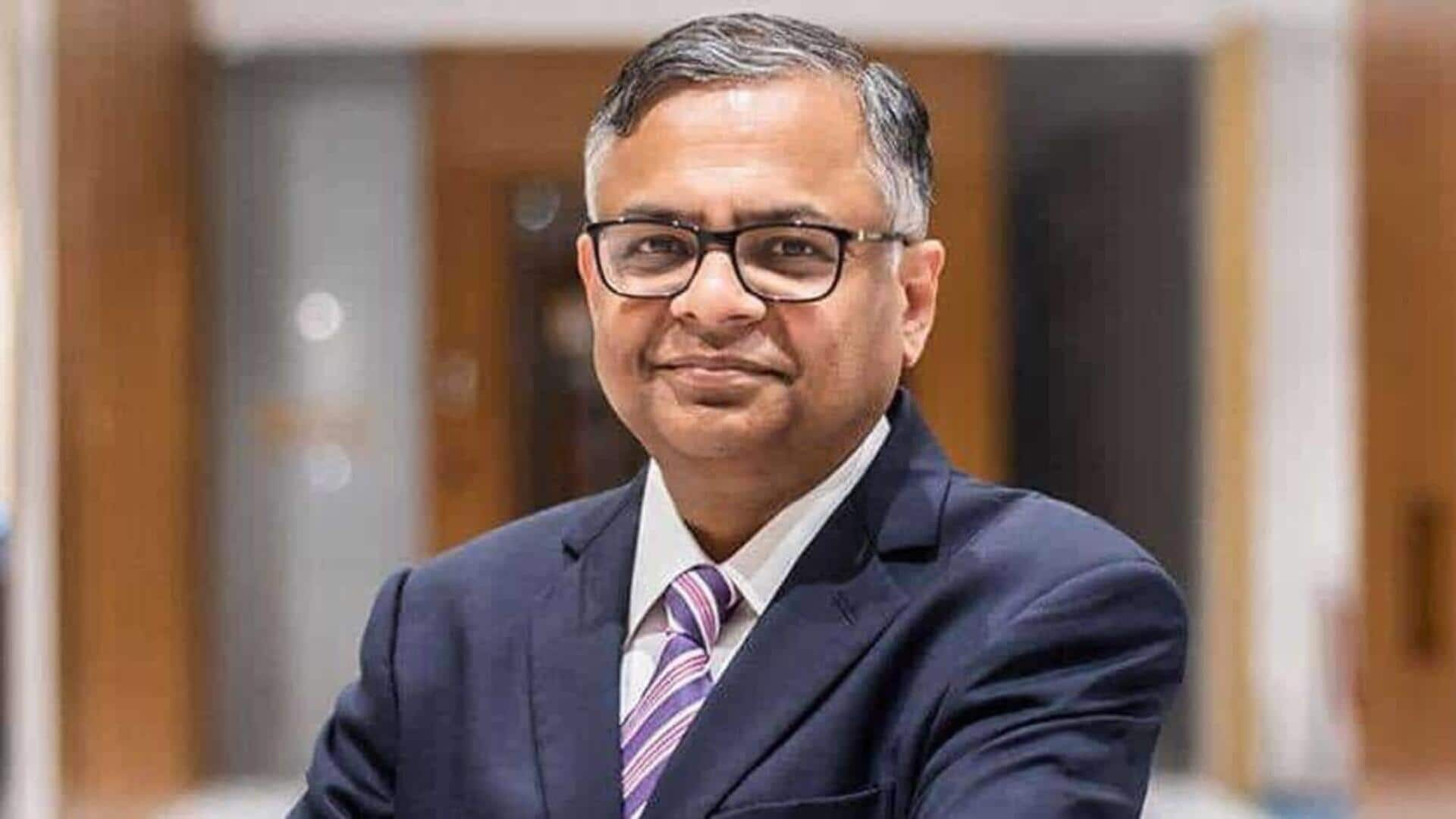
N Chandrasekaran gets historic third term as Tata chairman
What's the story
In a historic move, the Tata Trusts has approved a third executive term for N Chandrasekaran, chairman of Tata Sons. The decision marks a departure from the group's retirement policy and is aimed at ensuring continuity in key projects such as semiconductors and electric vehicle batteries. It also covers the transformation of Air India. Chandrasekaran will be 65 when his second term ends in February 2027.
Strategic decision
Proposal by Noel Tata and Venu Srinivasan
The decision to extend Chandrasekaran's term was proposed by Noel Tata and Venu Srinivasan at a Tata Trusts meeting on September 11. They stressed the need for continuity amid the group's ongoing business transformation. The resolution was unanimously approved, marking a major milestone as this is the first time an executive will continue in an active role beyond the retirement age limit set by group rules.
Leadership impact
Divide within Tata Trusts over private status of Tata Sons
Chandrasekaran's extension comes at a time when there is a divide within Tata Trusts over whether Tata Sons should remain private. Some trustees are reconsidering a July resolution on the matter. In this context, his continued executive leadership is seen as vital to guide the group through these complex times. Ketan Dalal, MD of Katalyst Advisors, said while the extension may seem unusual, it isn't entirely unexpected given the critical juncture of internal and external challenges facing Tata Group.
Career highlights
Chandrasekaran's tenure in numbers
Chandrasekaran, a veteran of Tata Consultancy Services (TCS), joined the board of Tata Sons in October 2016 and became chairman in January 2017. During his tenure, the Tata Group nearly doubled its revenue and tripled its net profit and market capitalization over five years. Under his leadership, Tata Sons' net worth has increased from ₹43,252 crore in 2018 to ₹1.49 lakh crore today.
Business expansion
New businesses launched under his leadership
Chandrasekaran's leadership also saw the Tata Group establish new businesses to leverage key opportunities. These include Tata Electronics for electronics and semiconductor manufacturing, assembly and testing. Tata Digital has launched an omni-channel platform with digital app Tata Neu and expanded into electronics (Croma), grocery (BigBasket), pharmacy and diagnostics (Tata 1mg) as well as fashion (Tata Cliq).
Strategic moves
Major strategic moves during his tenure
The Tata Group also witnessed major strategic moves during Chandrasekaran's tenure. Air India returned to the Tata fold after 69 years, with Vistara and AirAsia India merging with Air India and Air India Express, respectively. The group also acquired Tejas Networks, is developing an indigenous mobile network stack, and setting up battery gigafactories in India and the UK.